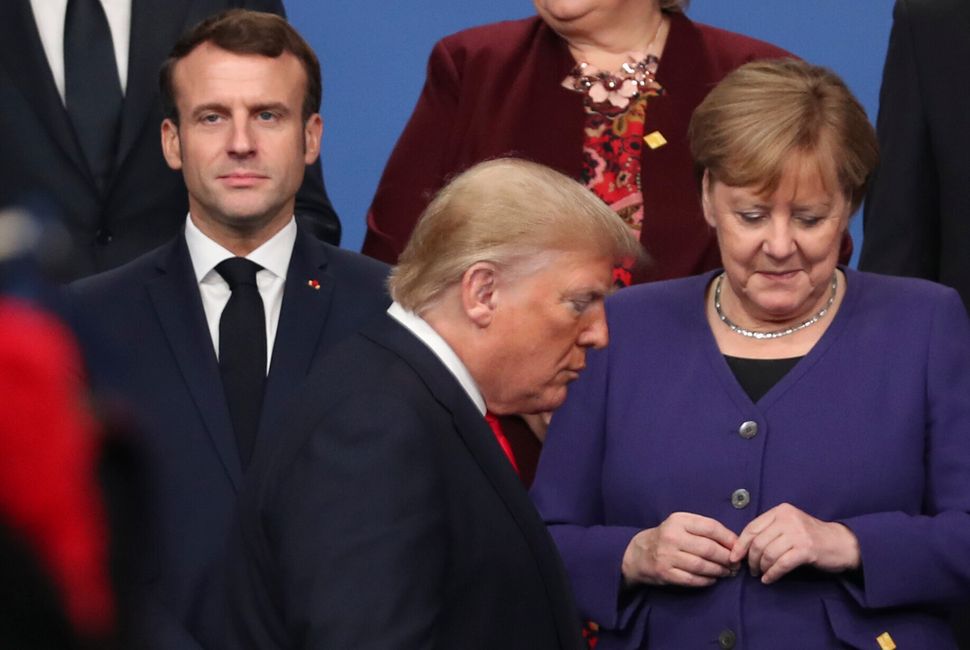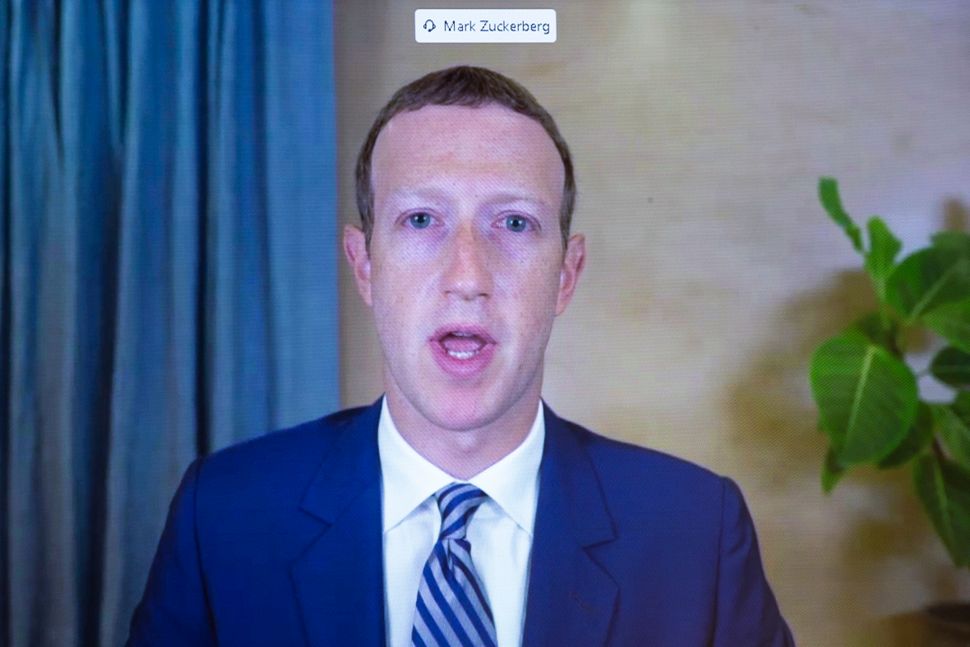
LONDON — Almost a week after Twitter permanently banned President Donald Trump and suspended his presidential campaign’s account, its chief executive used his own platform to explain the decision, a process that took 13 tweets and more than 600 words.
“I do not celebrate or feel pride in our having to ban @realDonaldTrump from Twitter, or how we got here,” Jack Dorsey wrote on Thursday. But, he added, “I believe this was the right decision for Twitter.”
Seemingly acknowledging that his decision would reignite global debate over the regulation of Big Tech, Dorsey admitted the ban highlighted the extraordinary power of Twitter and other social media companies, and warned the move could set a “dangerous” precedent.
That power has long troubled lawmakers on both sides of the Atlantic. In Europe, however, both friends and foes of Trump have been hugely critical of Trump’s ban from Twitter and Facebook, turbo-charging calls for more regulation of Big Tech to protect free speech.
“The right to freedom of opinion is of fundamental importance,” German Chancellor Angela Merkel’s chief spokesman Steffen Seiber said this week.
“This fundamental right can be intervened in, but according to the law and within the framework defined by legislators — not according to a decision by the management of social media platforms,” Seiber said. “Given that, the chancellor considers it problematic that the president’s accounts have been permanently suspended.”
Merkel’s bitter relations with Trump during his time as president makes her position even more notable. Her opinion, however, reflects the desire not just in Berlin, but across Europe, that governments — not private companies — decide curbs on free speech.
“I think there’s a real debate to be had about the status of the big internet companies and whether they should be identified as mere platforms or as publishers, because when you start editorializing, you are in a different world,” U.K. Prime Minister Boris Johnson said Wednesday.
Asked whether newspaper and TV regulation should also apply to tech giants, Johnson added, “It is time we had a frank conversation about the boundaries … and the role of these companies in what they choose to publish and what they choose not to publish.”

In France, the Trump social media ban has been met with condemnation from across the political spectrum: “It certainly does not help democracy,” said Aurore Bergé, a member of the governing centrist En Marche party and ally of President Emmanuel Macron.
Cédric O, the minister for digital in Macron’s government, tweeted that the bans pose “fundamental questions” and called for a “new form of democratic oversight” of social media companies.
Marine Le Pen, leader of the far-right National Rally party and Macron’s most likely main challenger in the 2022 election, said Trump’s removal “should outrage any citizen committed to democracy.”
Big Tech signals intentions
Dorsey’s decision to finally pull the plug on @realDonaldTrump, however, chimes with the more interventionist mood set by Silicon Valley ahead of the presidential election.
In October, just two years after Mark Zuckerberg sparked fury by rejecting calls for its removal, Facebook agreed to ban content that “denies or distorts the Holocaust.” Facebook also banned groups and pages linked to QAnon, with similar moves made by YouTube.
Twitter has rolled out new features including prompts that ask people to read articles before retweeting and labels and restrictions on tweets containing misleading information, including those from U.S. political figures. Many of Trump’s tweets included the label before he was banned.
“What we’re seeing is a shift from the platforms from a stance of free-speech absolutism, towards an understanding of speech moderation as a matter of public health,” professor Ethan Zuckerman of the University of Massachusetts-Amherst told The Associated Press.
Criticism of Zuckerberg’s initial refusal to act in 2018 was strong in Germany, where where Holocaust denial or trivialization is a crime, and social media sites that fail to remove hate speech face fines of up to 50 million euros ($60 million).
Its call for Facebook to abide by German law illustrates the position of Europe’s lawmakers: The debate is not about what is or isn’t acceptable to say on social media, but who decides.
“It’s not a matter of freedom of speech. It’s a matter of who is in control of the freedom of speech,” said Angela Mauro, HuffPost Italy Special Correspondent. “I think the [European Union] would be happy just to gain a role in the decision by companies to ban or not to ban.”

Indeed, many politicians criticising the Trump social media ban have acknowledged the need for action to be taken against the president, with Cédric O, the French minister, tweeting that the decision could be “justified” given the current threat level in the U.S.
‘Embarrassed’ Europe wants global solution
The question is now what governments in Europe and around the world can and will do in response, and why haven’t they done it already.
After having been rebuffed by U.S.-based social media chiefs, EU lawmakers have been “shocked” and “embarrassed” at how the unilateral decisions to ban Trump have exposed the glacial pace of regulation efforts in Europe, according to Mauro.
“The Trump ban shows how little has been done in the past to defend the prerogatives of elected governments in deciding what is right and wrong, and who needs to be banned by which platform. Big Tech does it and does it faster than states,” Mauro said.
Events in Washington, however, have focused minds in Europe and led to renewed calls for the EU and U.S. to “join forces” on digital regulation.
Writing in Politico under the headline ”Capitol Hill — the 9/11 moment of social media,” European Commissioner Thierry Breton claimed that proposed reforms on the Continent could “help pave the way for a new global approach to online platforms.”
“The challenges faced by our societies and democracies are global in nature. That is why the EU and the new U.S. administration should join forces, as allies of the free world, to start a constructive dialogue leading to globally coherent principles,” Breton wrote.
Although Breton claims “Europe is the first continent in the world to initiate a comprehensive reform of our digital space,” it could be many months or even years before the EU’s Digital Services Act and Digital Markets Act, which are based on the principle of “what is illegal offline should also be illegal online,” see light of day.
“The EU proposal is to fine big tech companies as much as 6% of their revenue if they don’t comply with orders to remove illegal content,” Mauro said. “But, like any EU decision, this one looks to be slow: Member states haven’t discussed it yet and they have the power to amend it.”
In the meantime, elected officials will need to rely on Big Tech to make the calls on what is right and wrong.
Calling all HuffPost superfans!
Sign up for membership to become a founding member and help shape HuffPost’s next chapter
Related posts:
Views: 0
 RSS Feed
RSS Feed

















 January 16th, 2021
January 16th, 2021  Awake Goy
Awake Goy  Posted in
Posted in  Tags:
Tags: 
















